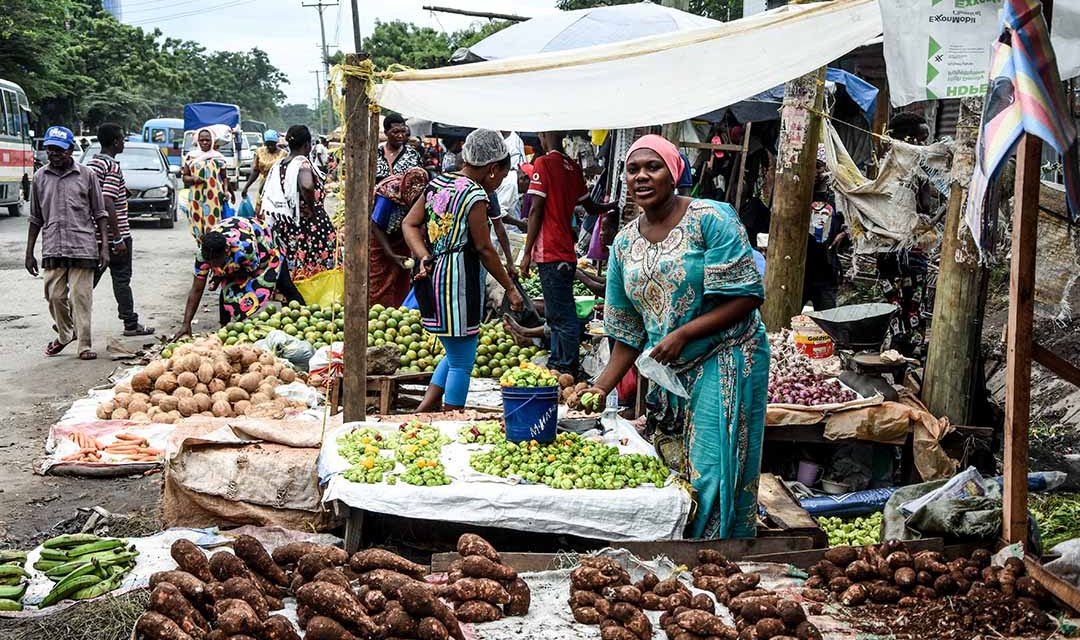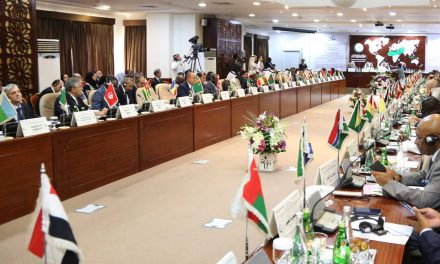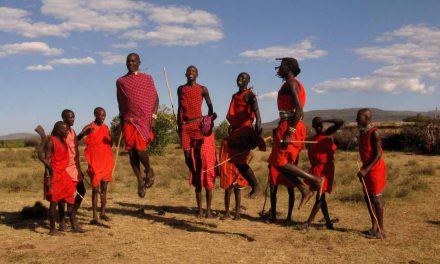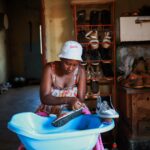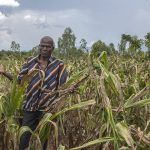Tanzania: the Covid data void
A moratorium on COVID-19 data, followed by government restrictions on information about the virus, has left Tanzanians and scientists in the dark. With more than 20 million cases of COVID-19 and close to 800,000 deaths around the world at the time of writing, life without the novel coronavirus might sound like a dream come true for people in most countries. The urge to return to normalcy is certainly high, but numbers of infections are still rising, and countries continue to rely on the available data to decide their response and approach to the pandemic.
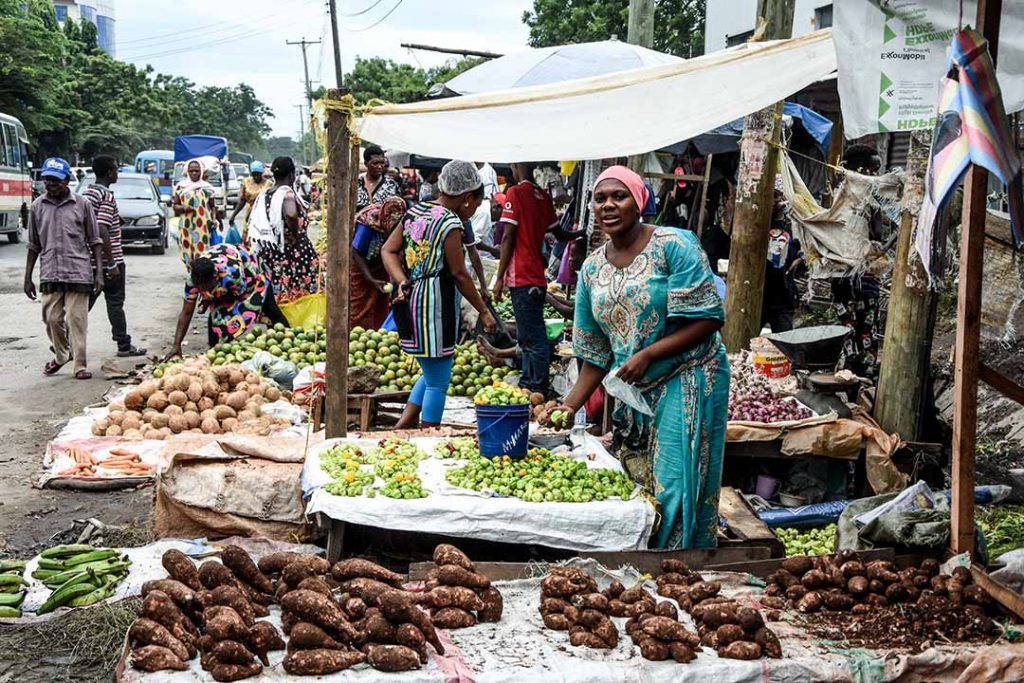
A vendor sells green peppers on Mabibo Street without wearing a face mask despite the confirmed COVID-19 coronavirus cases in Dar es Salaam, Tanzania, on April 16, 2020. – Tanzanian President John Magufuli has called on citizens to turn to God and to keep the economy turning, but as coronavirus cases creep up, calls are rising for the country to take stronger action. While countries across Africa have imposed curfews, partial and full lockdowns, Tanzania has resisted such measures. Schools and universities have been shut but markets, bus stops and shops bustle as usual. (Photo by Ericky BONIPHACE / AFP)
However in East Africa, Tanzania, which confirmed its first case of the viral pandemic on 16 March, COVID-19 data stopped being released on 8 May, almost two months into the fight. At that point, the World Health Organization (WHO) had logged 509 COVID-19 cases and 21 deaths in Tanzania.The country’s president, John Magufuli, accused the Ministry of Health of “fueling panic” by releasing new COVID-19 figures.
He also said COVID-19 test kits used at the country’s national laboratory were contaminated and unreliable. The president ordered a criminal investigation into the tests, saying he also suspected “sabotage from imperialists” was at play. James Mukandala, a retailer in the busy commercial capital Dar es Salaam, took meticulous coronavirus preventive measures as he served his customers in the early days when the country advocated social distancing measures, the wearing of face masks and hand washing. But when data publishing was put on hold, so too was his commitment to prevention. “It was difficult to believe that the coronavirus cases had disappeared so suddenly,’’ says Mukandala. “There was a blackout of information; we went back to normal. Each time I tried to put on a face mask, I felt an odd man out.
The bucket of water and soap that I had placed in front of my shop for customers to wash hands, all became useless,’’ he tells Africa in Fact.Today, people can freely walk around, go to restaurants, bars and clubs, there’s no wearing of face masks, no reminders about hand washing. Schools, stadiums and all public places have been reopened. Meanwhile, organisations that were focusing on health communication to educate communities on how to deal with the coronavirus have been left in limbo. “We (in Tanzania) seemed to have been pursuing a strategy of herd immunity, but we’re doing it in data darkness,’’ says Aidan Eyakuze, executive director of civil society organisation Twaweza East Africa and a board member at the Open Government Partnership. On 15 May, truck drivers who tested positive for COVID-19 in Kenya after crossing the border from Tanzania became the only indicator that there were indeed cases of COVID-19 in the country. Two days later, Uganda reported that four Tanzanian truck drivers had tested positive for COVID-19.
The movement of truck drivers necessitated temporary border closures between Tanzania and Kenya on 17 May, but after two days of talks between the countries, the borders were reopened. On 11 May, Zambia also temporarily shut its border with Tanzania but reopened after about a week. Speaking in Geneva on 30 April, the WHO’s Regional Director for Africa, Dr Matshidiso Moeti, raised concerns about access to data in Tanzania. She said: “We are continuing to advise the government… to have policy decisions based on data, that will enable the government to get on top of the situation.” But academics, researchers and media practitioners fear that the veil of secrecy on data doesn’t augur well for Tanzania’s future ability to tackle viral pandemics, and impacts negatively on human rights by denying citizens their constitutional right to much needed information.
Scientists who have been trying to make sense of how Tanzania is handling the pandemic are left guessing. Videos of night burials circulated on social media raised suspicions of a cover-up of deaths and the true extent of the pandemic in the country remains a matter of speculation. “The absence of data eliminates many opportunities for learning and health systems strengthening,” says Professor Frank Minja, the Director of Global Outreach in the Department of Radiology and Biomedical Imaging at the Yale School of Medicine in the United States. “It’s a bit tricky to make an informed assessment about the situation given there’s no empirical data coming out of Tanzania,” says Dr George Rugarabamu, Chief Executive Officer of Medicines Development for Global Health.
“If there’s indeed no COVID-19 in Tanzania, or if the rate is minimal compared to March/April 2020, then there’s definitely something to learn from Tanzania’s COVID-19 response,” he says, warning however that viruses with pandemic potential are likely to occur again and Tanzania needs to be clear about its science. “As a country, we need to know what pandemic control approaches work in our settings. Active research is an insurance policy for future outbreaks,” Rugarabamu says. “Also, taking part in global research will come in handy in the future, should we receive medicines and vaccines from elsewhere.” However the Director General of the National Institute for Medical Research (NIMR), Professor Yunus Mgaya, defends Tanzania’s decision to withhold data on COVID-19, saying it was necessary for curbing “public panic” and was geared at achieving wider national interests.
“I agree that researchers and scientists in general might be frustrated by the lack of access to data. This I know, for sure, given that I am also a scientist. But let’s look at the bigger picture. Tanzania is pursing the herd immunity strategy in a unique style. The release of data would have been counterproductive because of the panic associated with COVID-19,” he says. To make matters even more confusing, the sharing of information on disease outbreaks such as COVID-19, without government approval, is now a criminal offence in Tanzania. Regulation 16 of the new Electronic and Postal Communications (online content) regulations, 2020, which came into effect in July, classifies as prohibited “content with information with regards to the outbreak of a deadly or contagious disease in the country or elsewhere without the approval of the respective authorities”.
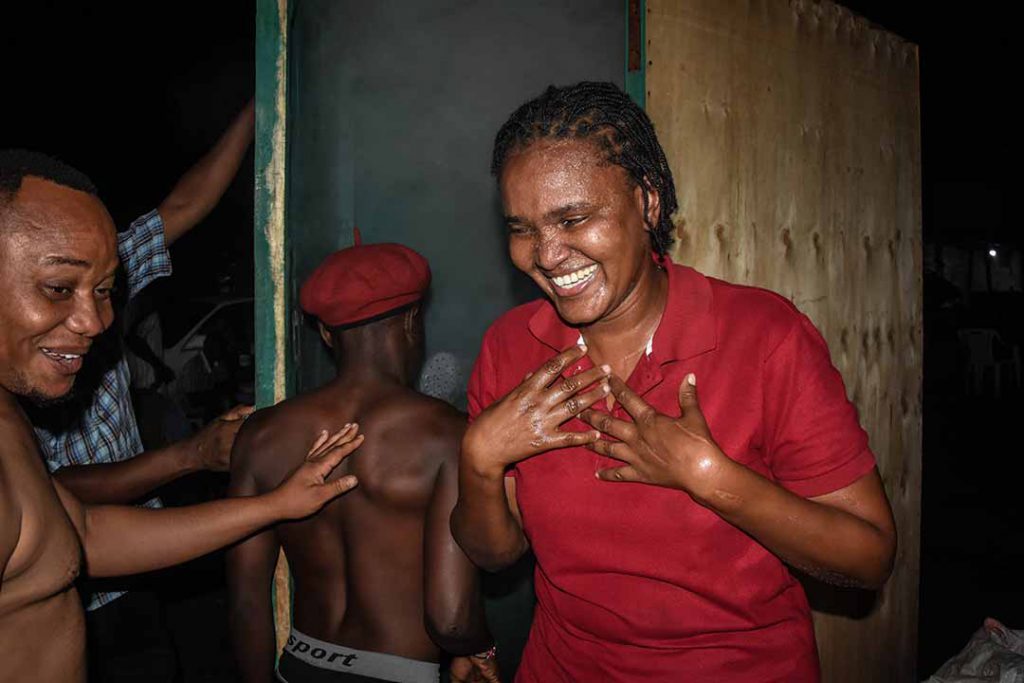
A woman reacts as a customer enters the steam inhalation booth installed by Tanzanian herbalist Msafiri Mjema in Dar es Salaam, Tanzania, on May 22, 2020 to use the treatment as a preventive measure against COVID-19 coronavirus. – People willing to undergo the treatment will pay 1000 Tanzanian shillings (about less than a half a US dollar) to enter the booth, and inhale vapours of water and salt, for 5 to 10 minutes. Steam inhalations are a popular traditional treatment for flu, high fever, and malaria. Tanzanias President John Magufuli said that one of his children had contracted COVID-19 coronavirus and had recovered thanks to steam inhalations using lemons and ginger. Tanzania is one of a few countries in Africa that have not taken extensive measures against the virus. (Photo by Ericky BONIPHACE / AFP)
A human rights lawyer, Jebra Kambole, says that these regulations mean that people might be charged for false information. “For example, an online TV station was suspended for a year for covering a COVID-19 report from the United States embassy in Dar es Salaam,” he says. Kwanza Online TV was suspended for 11 months in July for re-posting a health alert from the US embassy, warning of the “elevated” risk of COVID-19 in the country. “People are afraid to share COVID-19 data and stories because they are afraid of criminal charges,” Kambole says. The new regulations are making journalists and social media users insecure, too. Journalist Herieth Makwetta, a health reporter for a national daily, Mwananchi, feels demoralised as she tries in vain to make sense of her COVID-19 stories. “I am in a situation where I am torn between concluding that Tanzania is coronavirus-free or remaining in doubt because I don’t have real evidence, the data.
How and what do I tell my readers?” Makwetta asks, faced with media laws that forbid reporting public health information beyond the official narrative. The irony is that Tanzania’s Access to Information Act 2016 provides for public access to information from state officials and the government, stating: “Every person shall have the right of access to information which is under the control of the information holders.” But according to investigative journalist Said Khalifa, pursuing a simple data story in Tanzania, with a question such as “what are the latest COVID-19 numbers?” is a perilous process that has left most journalists like him “groping in the dark”. “Government officials don’t want to talk. Doctors are telling us that they aren’t authorised to speak. There are no official reports on data. We are stuck, and we don’t know which way to go. And we can’t use unofficial information,” laments Khalifa.
Syriacus Buguzi is a science journalist who is passionate about raising the
profile of Tanzania’s scientific research output and innovation through mass
media. He is a medical doctor (MD), who undertook post-graduate studies in mass Communication at the University of Dar es Salaam (UDSM) and is currently pursuing a Masters in Science Communication at the University of Sheffield in the United Kingdom.

